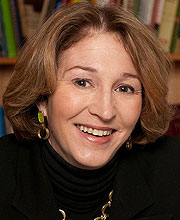PRINCETON – As the United States and Russia try to broker a conference that can bring the various sides in the Syrian conflict to the negotiating table, potential Western participants, at least, should be thinking about the larger implications of the Syrian conflict for dictators and democracies around the world.


PRINCETON – As the United States and Russia try to broker a conference that can bring the various sides in the Syrian conflict to the negotiating table, potential Western participants, at least, should be thinking about the larger implications of the Syrian conflict for dictators and democracies around the world. Here are the lessons thus far:
Bad guys help their friends. The Russians and Iranians are willing to do whatever it takes to keep President Bashar al-Assad in power. Hezbollah, supplied by Iran, has now moved openly onto the battlefield in support of the Assad regime. Russia and Iran have kept the Syrian government supplied with heavy weapons and other military assistance, including a Russian shipment of sophisticated anti-ship missiles with advanced radar systems. These will help Assad hunker down and fend off all comers in an Alawite mini-state that will include the Russian-leased port facility at Tartus.
Diplomacy without a credible threat of force is empty talk. "Speak softly and carry a big stick,” Theodore Roosevelt counseled. President Barack Obama rightly wants to lead in global affairs through civilian more than military power; he understands that military solutions to foreign-policy problems are hugely expensive and often counter-productive in terms of advancing US security and prosperity over the long term.
But Obama’s strategy in Syria seems to be "speak loudly and throw away your stick.” Obama has made it clear over and over (as has NATO Secretary General Anders Fogh Rasmussen) that he has no interest in intervening militarily in Syria. And the US response to the latest Russian missile shipment? Secretary of State John Kerry said: "I think we’ve made it crystal clear we would prefer that Russia was not supplying assistance.”
The US has cast aside one of its most important foreign policy tools, creating an incentive for the Syrian government and its supporters to keep fighting until they are in the most advantageous position possible to negotiate a settlement – that is, if they have any incentive to negotiate at all.
If you are a dictator facing sustained political protests, be as brutal as possible and incite sectarian killing. Part of Syria’s agony is the self-fulfilling nature of the conflict. From March to December 2011, hundreds of thousands of Syrians marched every Friday, seeking the same political liberalization that Tunisians, Egyptians, Yemenis, Bahrainis, Jordanians, and others across the Middle East and North Africa sought in what was optimistically called "the Arab Spring.” Unarmed, they were shot in the streets by riot police and government snipers, until they finally started forming small local militias for self-protection – militias that gradually grew into the loose federation of forces now known as the Free Syrian Army.
All the while, Assad was describing the violence as the product of terrorists and Sunni extremists seeking dominion over minority Alawites, Druze, Kurds, Christians, and other groups. He worked assiduously to fan the flames of sectarian civil war, succeeding to the extent that now the chief reason for not intervening to stop the killing is the impossibility of doing so effectively in an environment of sectarian violence.
Regional organizations are still unable to solve regional problems without great-power leadership. Turkey has been threatening and calling for military action for 18 months, but US officials say that the Turks are not in fact ready to do anything beyond providing support for refugees and opposition fighters. Qatar and Saudi Arabia are also sending arms to Syrian opposition groups, but the Arab League and the Gulf Cooperation Council are paralyzed. Without a great power that is willing both to share the lead and to push from behind, regional organizations cannot take charge in their own neighborhood.
Anne-Marie Slaughter, a former director of policy planning in the US State Department
Copyright; Project Syndicate.


